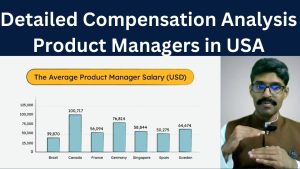The Insider Guide to Careers
Insider information, secrets and tips about getting hired and building careers. For employees and job candidates.
The average college grade of a millionaire in the US is 2.9 out of 4. This number is well below the average US college grade of 3.15. Why are millionaires well below average when it comes to studies?
A study of 700 millionaires by author Eric Barker found that millionaires do significantly worse than class toppers and valedictorians when it comes to grades. Their GPA is at least 0.7 points below the valedictorian GPA of 3.6. This interesting finding points out some dramatic truths about how college works.
1) Colleges teach skills rarely connected to job skills: Colleges are good at teaching static skills designed years earlier. Periodic revision of the curriculum is a logistical nightmare; hence academic skills lag the job market expectations. The skills you learn in college are of little help in the real world. Therefore, doing well in college courses means little in the real world. Entrepreneurs are four times as likely as employees to become a millionaire. Persistence and grit are crucial abilities to become a successful entrepreneur, and these factors bear no relation to grades. In a study of toppers of the IIT entrance exam, arguably the most challenging college exam in the world, most toppers end up in traditional MNC managerial jobs. Very few end up as entrepreneurs and billionaires.
2) The real world is messy: College courses do a disservice. Firstly, they focus inordinately on technical skills and ignore people skills and communication needs which play a critical role in getting a job. Secondly, universities reward students who follow the script defined by professors and work diligently. In a real job, there are multiple stakeholders who all have differing expectations from you. It is not always about hard work but about smart work. For example, if you need to play office politics, you cannot entirely run away from that.
3) The labor market is messy: To be a millionaire in the US, one needs to be in the top 6-8% of the US population. The problem is that the job market is topsy-turvy, and it is difficult to make good money for a sustained period. You will be laid off quickly if you are overpaid. If you make a good income over time, you may become the target of age discrimination. Age discrimination is surprisingly common in the US. Around 93% of employees above age 50 have seen it happen. There is a lot of churn at the top of the income distribution. For example, in the top 1 percent, only 1.6 percent will stay there for at least five consecutive years, and only 0.6 percent will remain there for at least a decade. Income inequality has also worsened in the past couple of decades, with governments doing little to step in.
4) Schools target the average individual: The current educational system is designed for an average person and not customized for the genuinely talented. Top exam performers are sending a signal that they are very good at doing the tasks and gaining knowledge in courses designed for an average person. In short, toppers are excellent at being average.
Not surprisingly, their careers tend to be nothing superlative. Most of the toppers do better than average. They work in Multi-National-Companies and get rewarded for compliance with the rules and expectations of the company. Most get rewarded with time. This system of time-based promotions means that it is not skills that get rewarded. Instead, it is loyalty. Whether we like it or not, the top two predictors of promotions are age and time in the role.
5) Learning to shake up things: As Barker notes, There is a risk-reward model in life. The more risk you take, the more you can gain. Of course, you can also end up losing more. There is a link between testosterone and risk-taking behavior. That could be a reason why a majority of millionaires tend to be men. Risk-taking behavior means not following the rules, whether college or work. It is difficult to follow all the college rules to get good grades and then suddenly become a risk-taker after college. Hence, it is unsurprising that rule breakers who become millionaires are terrible at grades.
For more such articles, also follow my Substack and Careerbolt channels.



